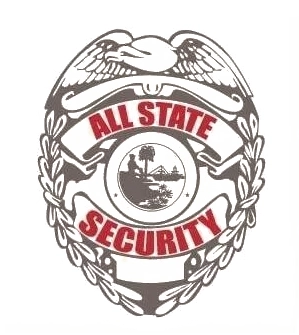5 Essential Steps When Planning Event Security at a Corporate Event

When you plan to put on a special corporate event, do not overlook your security plan. You likely want everyone in attendance at the event to feel as secure as possible. Hiring an event security team and writing up an event security plan will help you achieve a safe corporate event.
1. Evaluate the Location
Different venues will require different levels of security. For example, a small event in a conference room at a hotel is much more contained and will require less security personnel than an outdoor retreat with participants spread out over a larger area.
Different venues will require different levels of security. For example, a small event in a conference room at a hotel is much more contained and will require less security personnel than an outdoor retreat with participants spread out over a larger area.
2. Determine the Profile of the Event
An event with just a few attendees in a closed facility will require fewer security guards than an event with many essential VIP guests. The more high-profile VIP guests you have at the event, the greater the need for more security to keep a close eye on the attendees.
Obviously, your company would want to ensure that anyone who works directly with things like industrial equipment, forklifts, and hazardous materials is trained in its proper use. However, even unrelated employees who work around these items may also benefit from safety training in how to avoid dangerous situations or what to do in an emergency.
3. Establish Credentials
Your event will have various types of people present, from the attendees themselves to security personnel and third-party vendors. To ensure the exclusivity and safety of the event, establish a credentials system for the event.
For example, everyone who attends the event may need to check in with a security guard and receive a lanyard or card that they can use to establish their credentials for the event. Be sure your list of those approved for the event includes all third-party vendors.
A credentials system will help your security team quickly identify who is supposed to be allowed on the event premises and who is not. This will make turning away people a more straightforward process for the security team.
4. Screen the Credential List
With a corporate event you want to keep secure, screening everyone on the event list before the event starts is essential. Screening the list will allow the security company to become familiar with the faces and names of the primary corporate attendees.
Screening the list will also enable the security team to check up on any vendors or third-party suppliers working the event. The security team can run security checks to ensure no vendor or third-party supplier will disrupt the flow of your event.
5. Establish the Security Uniform
Finally, establish the dress code for the security team. With some corporate events, especially fancier events, you may want the security staff to blend in by dressing in suits. More discreet clothing that matches what the attendees wear will allow the security staff to run more surveillance during the event.
With a more open corporate event, you may want the security staff to dress in identifiable uniforms. Identifiable uniforms can provide a visible
deterrence factor. They can also make it easier for attendees to know who to turn to for assistance. Visible security guards, in addition to keeping the event secure, can provide attendees with directions and information about the event. They can act as an extension of the overall event staff.
We can help you keep your next corporate event secure. At All State Security, we have professional security guards who will help ensure your
event runs smoothly. Please contact us today to ask about and arrange for our services. We look forward to helping you with your event security needs.
